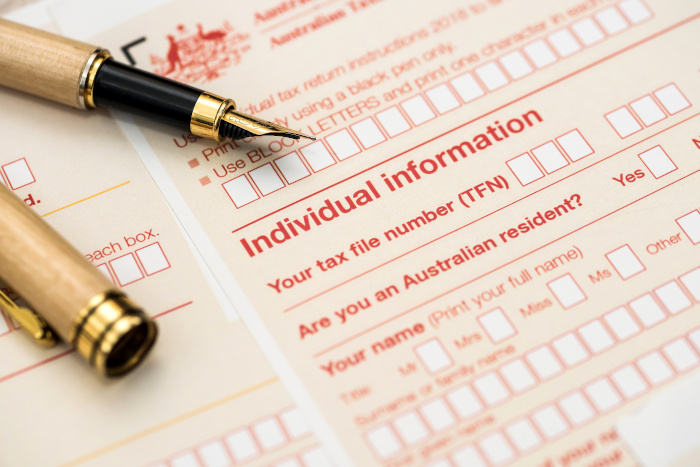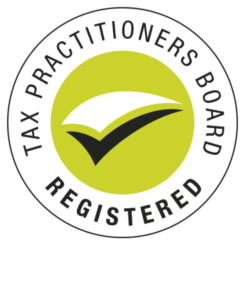Biggest Retirement Planning Mistakes
1. Leaving Funds in Accumulation Phase After Retiring
The Problem
Some retirees leave their super in the accumulation phase after turning 60. While this seems simple, it often means paying more tax than necessary. Investment earnings in accumulation are usually taxed at 15%, which can quietly eat into your retirement savings over time.
To avoid mistakes like this, it’s important to understand your options and make informed choices about your super.
When more money goes to tax, there’s less left over to enjoy during retirement. By not reviewing their super options, some Australians might quietly miss the chance to make the most of their retirement savings.
What You Can Do
If you’re over 60 and eligible, consider moving your super into a pension (retirement income) account. In this phase, investment earnings are tax-free. Over 10 to 20 years, the difference can be significant – helping you keep more of your money to enjoy in retirement.
2. Not Applying For The Age Pension As Soon As You’re Eligible
The Problem
Some people delay applying for the Age Pension, thinking it’s only a last resort. But waiting may mean missing out on income support that could improve your retirement lifestyle.
This could mean you struggle to cover your retirement expenses and don’t enjoy the standard of living they had hoped for during retirement.
What You Can Do
Check your eligibility as soon as you reach pension age. Your entitlement depends on both your age and financial circumstances. Applying early may help ease financial pressure and provide peace of mind.
To qualify, you need to be old enough and meet certain income and asset limits.
The age you need to be depends on your date of birth:
| Your birth date | Age Pension age |
| Between 1 July 1952 and 31 December 1953 | 65 years and 6 months |
| Between 1 January 1954 and 30 June 1955 | 66 years |
| Between 1 July 1955 and 31 December 1956 | 66 years and 6 months |
| Born on or after 1 January 1957 | 67 years |
3. Not Making the Most of Your Entitlements (or Working Too Long)
The Problem
The amount of Age Pension you receive depends on your overall financial situation, including Centrelink’s assessment of your income and assets.
Centrelink assesses both income and assets when working out Age Pension benefits. If your finances aren’t structured effectively, you may receive less than you’re entitled to.
What You Can Do
Many Australians may be able to receive more from their Age Pension by making a few simple adjustments to their finances.
Sometimes small adjustments – such as contributing to a younger partner’s accumulation super – can boost your Age Pension entitlement. Because the rules are complex, it’s wise to get professional advice before making changes.
4. Believing You Must Stop Work Completely to Qualify for the Age Pension
The Problem
The Age Pension is designed to support Australians in retirement, but you don’t need to be fully retired to receive it.
Many people assume you must retire fully to receive the Age Pension. This isn’t true – eligibility depends on income and assets, not whether you’re working.
What You Can Do
If you’re nearing Age Pension age, check your options even if you’re still working full-time, part-time, or casually. You may still qualify for part or full payments.

5. Not Applying for the Commonwealth Seniors Health Card (CSHC)
The Problem
Some retirees overlook the CSHC, missing out on cheaper medicines and valuable concessions.
You might be able to get a CSHC even if you don’t qualify for the Age Pension or a Pensioner Concession Card.
What You Can Do
If you’ve reached Age Pension age and meet the income test, you may qualify – even if you don’t receive the Age Pension. This card can reduce everyday costs and ease the pressure on your retirement budget.
If you’re unsure whether you meet the criteria, feel free to get in touch so we can assess your situation and explore your options together.
6. Not Using Downsizer Contributions to Boost Super
The Problem
If your family home feels too big after the kids move out, downsizing could free up extra funds. Many retirees miss the chance to direct some of these funds into super.
What You Can Do
If you’re 55 or older and meet eligibility rules, you can contribute up to $300,000 per person ($600,000 per couple) into super from the sale of your home. These contributions don’t count towards the usual caps, but must be made within 90 days of settlement.
But to do this, you need to plan ahead, the money has to be added to your super within 90 days after the home is officially sold.

7. Only Taking the Minimum Income from Your Super Pension
The Problem
Many retirees take only the minimum drawdown from their pension account, worried about running out of money. But research shows most Australians pass away with much of their super untouched, missing out on the lifestyle they could have enjoyed.
But a government review^ found that most Australians don’t spend much of their super in retirement, and many pass away with most of it still there.
This means some people might miss out on enjoying the kind of retirement they had hoped for.
What You Can Do
When planning your annual income for retirement, it’s helpful to keep in mind that your spending needs often change over time. Retirement is typically made up of three phases:
- An active phase, where you may enjoy travel, hobbies, and a busy lifestyle
- A slower phase, as your activity levels decrease
- The later years, when your spending may reduce further
This means you’ll likely spend more in the earlier years of retirement than in the later ones.
Remember that retirement has different phases – often higher spending early on, tapering down over time. Balance enjoying your lifestyle now with preserving funds for later years.
^ Treasury, Retirement Income Review – Final report, 20 November 2020, p. 432.
8. Retiring Too Early (or Without Clear Objectives)
The Problem
Going into retirement without clear financial goals – or leaving the workforce before you’re financially ready – can create long-term stress.
What You Can Do
Think carefully about the lifestyle you want, then work with an adviser to build a plan. Starting early gives you more flexibility and better outcomes.
It’s also smart to start early, so you have plenty of time to prepare and save for the retirement you’re hoping for.

9. Not Reviewing Your Retirement Plan Regularly
The Problem
Life changes and so should your retirement plan. Failing to review it can leave you exposed.
What You Can Do
Update your plan annually or after major life events (e.g. job changes, inheritance, health needs). Adjusting early helps keep you on track.
10. Underestimating Longevity
The Problem
Australians are living longer, which means retirement savings must stretch further. Many underestimate how long their money needs to last.
What You Can Do
Plan for at least 20–30 years of retirement, and factor in rising healthcare and living costs.
11. Overlooking Healthcare Costs
The Problem
Healthcare expenses usually rise as you age. Ignoring this in your planning can strain finances later.
What You Can Do
Consider healthcare cards, insurance, and government support. Build rising medical costs into your long-term budget.
For more information on available assistance, visit the Services Australia website.

12. Ignoring Inflation
The Problem
Inflation reduces purchasing power. If ignored, your retirement income may not keep up with rising living costs.
What You Can Do
From June 2012 through early 2020, Australia’s inflation rate remained consistently below 3% per annum. However, following the onset of the global pandemic in March 2020, inflation surged – peaking at 7.8% in late 2022 – before gradually easing.
Regularly reviewing your financial plan is essential. Ensure your investment and income strategies are structured to help preserve purchasing power and remain resilient in a higher inflation environment
13. Not Adjusting Investments Near Retirement
The Problem
An investment mix that worked while you were working may not suit retirement. Too much risk, or too little growth, can both be problematic.
What You Can Do
Rebalance your portfolio as retirement approaches. A financial adviser can help tailor the right balance for your goals.
14. Ignoring Tax Implications
The Problem
How your super is structured affects how much tax you pay in retirement. Some people unintentionally create extra tax bills.
What You Can Do
If you’re fully retired and keep your super in a Retirement Income account, the money it earns won’t be taxed. But if you take out a large amount and invest it somewhere else, you may have to pay tax on the money it earns.
Super in retirement phase is tax-free, but lump sums invested outside super may attract tax. Get advice before making withdrawals.

15. Waiting Until Just Before Retirement to Review Super
The Problem
Leaving super planning too late often means missed opportunities for growth.
What You Can Do
Check your super regularly throughout your working life. Small adjustments early can make a big difference later.
16. The Biggest Mistake: Not Working with a Financial Adviser
The Problem
The biggest retirement planning mistakes is not talking with Financial advisors, accountants, and other professionals can help guide you through the complexities of superannuation, investments, changing regulations, and other factors that may impact your retirement.
Retirement planning is complex. Trying to manage it alone often leads to missed opportunities or costly mistakes.
What You Can Do
An adviser can help you navigate super, investments, pensions, and tax. Working with a professional gives you confidence and helps you make the most of your retirement.
Retirement is a significant and rewarding stage of life that deserves thoughtful planning. If you’d like to review your retirement income needs, please don’t hesitate to get in touch.



